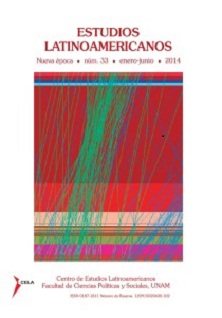El acoso de la historia. Derivas gramscianas de Fernando Martínez Heredia
Contenido principal del artículo
Resumen
En este trabajo se intenta explicar cómo el historiador Fernando Martínez Heredia retoma los “usos” de Gramsci para reconstruir el largo siglo XX cubano, en particular la Revolución antimachadista de 1930. El artículo se centra en tres puntos: 1) la concepción de la historia como problema; 2) la dimensión política del sujeto de la historia, y 3) el papel del tiempo como eje analítico de la realidad cubana. A lo largo del trabajo se hacen cruces con la obra de otro cubano, Alejo Carpentier, que también dedicó parte de su obra a explicar la revuelta popular de 1930. Ambos cubanos presentan una forma peculiar de reconstruir y entender la movilización social: a partir de la vida y la experiencia de los sujetos anónimos. La diferencia estriba en que para el novelista el proceso tiene un carácter existencialista, mientras que para el historiador tiene una dimensión social. A manera de un montaje cinematográfico se intercalan citas de Gramsci para resaltar las deudas que con él tiene Martínez Heredia.
Descargas
Los datos de descargas todavía no están disponibles.
Detalles del artículo
Cómo citar
Inclán, D. (2014). El acoso de la historia. Derivas gramscianas de Fernando Martínez Heredia. Estudios Latinoamericanos, (33), 13–29. https://doi.org/10.22201/cela.24484946e.2014.33.47168
Citas en Dimensions Service

Este obra está bajo una licencia de Creative Commons Reconocimiento-NoComercial-SinObraDerivada 4.0 Internacional.

